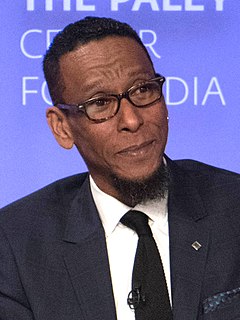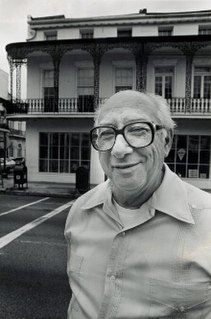A Quote by Sean Hannity
Why would you expect people who don't know any history to be able to report on history? Why would you expect people who are shallow and report only today's exciting story, to be followed by tomorrow's exciting story, to have any sense of depth or any sense of background?
Related Quotes
Books can create a depth of story, a background of information and ideas, that televison and movies can't. Sure, the television shows may shock, but only on a superficial level. They'd never risk market share to really explore the issues. They report, but don't analyze or suggest any new ways for living our lives.
I don't know why women would think they would be underrepresented in that 40 per cent, and I do not know why they think they would be underrepresented in that 60 per cent either. Because, any community that has their traditional leader in the area, one would expect that, among the people, they would want to ensure that this committee, that 60%, is properly representative.
It became a question of taste. I have a certain taste in art history. And that - I had a huge library of art history books in my studio. And I would simply have the models go through those books with me, and we began a conversation about, like, what painting means, why we do it, why people care about it why or how it can mean or make sense today.
History is a story like any other, but black history is a story so devoid of logic that it frustrates the young reader. The young readers in my house, told of slavery and segregation, asked in disbelief, 'What? Why?' We - the parents of black children, the parents of all children - still need to tell that story.
But I am not sure it would contain any short stories. For the short story is a minor art, and it must content itself with moving, exciting and amusing the reader. ...I do not think that there is any (short story) that will give the reader that thrill, that rapture, that fruitful energy which great art can produce.
My father is a cultural anthropologist and my mother ran an outpatient clinic and treated a lot of people who had been institutionalised. I was very fascinated with behaviour and criminology and why people do things that don't make any sense. I would probe my mother: "Why? Why would somebody do this?" And look for some causality between someone's mental state and their behaviour. I think it had a lot of influence on me.
The Universe story is the quintessence of reality. We perceive the story. We put it in our language, the birds put it in theirs, and the trees put it in theirs. We can read the story of the Universe in the trees. Everything tells the story of the Universe. The winds tell the story, literally, not just imaginatively. The story has its imprint everywhere, and that is why it is so important to know the story. If you do not know the story, in a sense you do not know yourself; you do not know anything.
It is not surprising that only one medieval state, Venice, long possessed anything clearly identifiavble as a navy in this sense. We shall see that no state in the British Isles attained attained this level of sophistication before the 16th century, and no history of the Royal Navy, in any exact sense of the words, could legitimately begin much before then. This book, which does, is not an institutional history of the Royal Navy, but a history of naval warfare as an aspect of national history. All and any methods of fighting at sea, or using the sea for warlike purposes, are its concern.





































